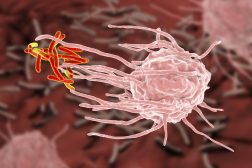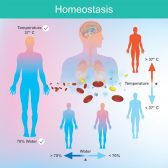Definition
noun, plural: biological clocks
Any of the various mechanisms that regulate biological rhythms
Supplement
A biological clock pertains to any of the various mechanisms that regulate biological rhythms such as sleep and wakefulness cycle, body temperature, patterns of hormone secretion, blood pressure, digestive secretions, alertness levels, reaction times, etc.1 Biological rhythms is the synchronized cyclic pattern demonstrated by an organism as its response to a particular stimulus. This biological clock seems to give the organism a sense of time as evidenced by a rhythmic pattern on its behavior. Biological clock that synchronizes with biological rhythm may be endogenous or exogenous. An endogenous type is one in which the internal biological clock is the one that controls it. An example of it is the body temperature cycle. An exogenous type is one that which involves an external cue (i.e. zeitgeber). An example is the sleep and wakefulness pattern. Other concepts related to biological clock are senescence, circadian clock, epigenetic clock, and molecular clock. Senescence is the ageing or the eventual deterioration of an organism through time. Biological clock may also pertain to female fertility wherein there is a gradual decrease of fertility from puberty to menopause. Circadian clock refers to the various mechanisms that result in a circadian rhythm.
Synonym(s):
- body clock
- internal clock
See also:
Reference(s):
1 Hedge, A. (2013). Biological Rhythms. Retrieved from ://ergo.human.cornell.edu/studentdownloads/dea3250pdfs/biorhythms.pdf







